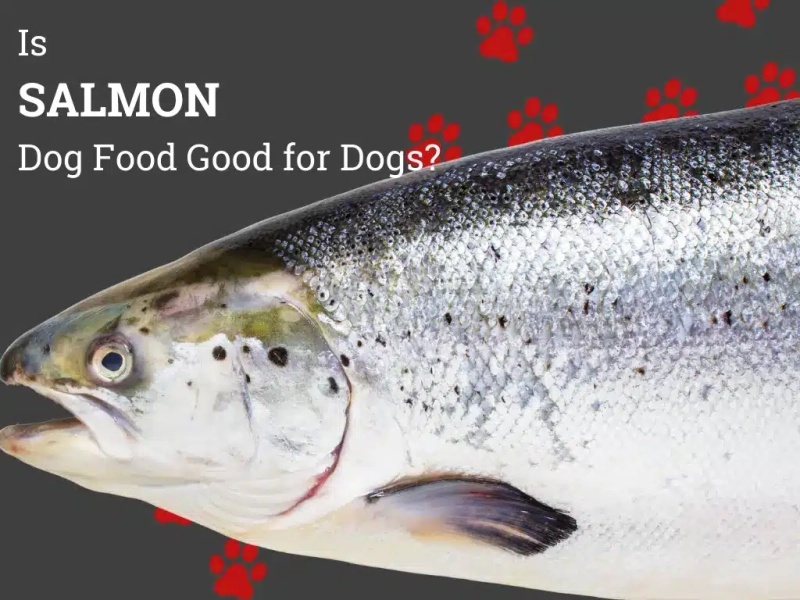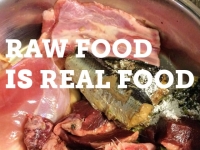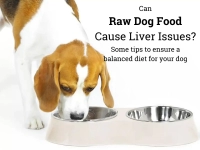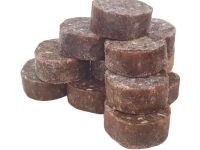Salmon: Is it a Good Choice for Dogs?
In This Article...
THE OVERVIEW...
When it comes to dog nutrition, the choices can be as varied as the dogs themselves. Among the options of protein sources available, salmon stands out with its rich flavours and health benefits. But the question for owners to consider: Is salmon dog food good for dogs?
The Nutritional Benefits of Salmon in Dog Food
Rich Source of Omega-3 Fatty Acids
Salmon is know for its high omega-3 fatty acid content. These essential fats contribute significantly to a dog’s health, promoting a shiny coat and healthy skin. Salmon also has anti-inflammatory properties, which can be beneficial for dogs suffering from joint issues or skin irritations.
| Salmon | Chicken | |
| alpha linoleic acid | 0.047g | 0.1g |
| DHA | 0.333g | 0.031g |
| EPA | 0.182g | 0.008g |
| DPA | 0.047g | 0.016g |
| Total | 0.609g | 0.155g |
High-Quality Protein
When comparing protein quality, salmon holds its own against chicken. It provides a complete amino acid profile that is crucial for muscle maintenance and overall vitality. Dogs thrive on protein, and salmon delivers it in a tasty package.
| Salmon | Chicken | |
| Protein | 20.5g | 23.3g |
Vitamins and Minerals
Beyond protein, salmon is packed with vitamins and minerals. It’s an excellent source of Vitamin D, B vitamins, and essential minerals like selenium. These nutrients play vital roles in various bodily functions, supporting everything from immune health to energy metabolism.
| Salmon | Chicken | |
| Vitamin A | 35ug | ~ |
| Vitamin D | 435ui | ~ |
| Vitamin E | 0.40mg | 0.39mg |
Salmon vs. Chicken: Which is Better for Dogs?
Comparative Analysis
Both salmon and chicken have unique benefits. A quick glance at their nutritional profiles reveals that salmon is richer in omega-3s, while chicken often contains more protein per serving. Choosing between them depends on your dog’s specific dietary needs. Explore this comparison for a deeper dive.
Digestibility and Allergies
Salmon is generally well-tolerated by most dogs, though some may have sensitivities. Chicken, while often easier to digest for many dogs, can also lead to allergies in some cases. Observing your dog’s reactions to different proteins can guide your choices. We suggest managing the transition to new proteins slowly, mixing existing food with the new food over the course of a couple of weeks.
Health Concerns: Is Salmon Good for Dogs with Itchy Skin?
For dogs plagued by itchy skin, salmon can be a game changer. The omega-3 fatty acids in salmon help reduce inflammation and promote skin health, making it a recommended protein for dogs suffering from dermatitis or allergies. Many pet owners report noticeable improvements after incorporating salmon into their dog’s diet.
Daily Feeding: Can Dogs Eat Salmon Kibble Every Day?
Nutritional Balance
Salmon can be part of a balanced diet, but it should not be the sole protein source. Mixing different proteins ensures a wider range of nutrients. Raw dog food containing salmon, like Kuri Lamb and Salmon, provides a balanced option that many dogs enjoy.
Potential Risks
Overfeeding salmon can lead to health issues. Signs of overconsumption include gastrointestinal upset and weight gain. Monitor your dog’s intake and adjust according to their health and activity levels. It may be that you need to include a lower fat option like Kuri Rabbit, Heart and Tripe
Can Salmon Dog Food Upset Dogs’ Stomach?
Understanding Sensitivities
While many dogs digest salmon well, a few may experience stomach upset. Common symptoms include vomiting or diarrhoea. If these occur, it may indicate a sensitivity or allergy. Gradual introduction of salmon into their diet can help mitigate such issues.Speak to one of the staff at Kuri City to help with this as needed.
Managing Dietary Changes
Introduce salmon slowly. Mixing small amounts with their regular food can help their digestive systems adjust. Always monitor their response, ensuring they thrive on this new addition.
Allergy Concerns: Are Dogs Allergic to Salmon Dog Food?
Identifying Allergies
Though rare, some dogs can develop allergies to salmon. Symptoms may include itchy skin, ear infections, and gastrointestinal distress. Differentiating between a sensitivity and a full-blown allergy is key. Consulting with a holistic veterinarian can clarify any concerns.
Alternatives to Consider
If your dog is allergic to salmon, consider proteins like lamb. These alternatives can provide high-quality nutrition without the risk of triggering allergies. Check out Lamb, Heart and Tripe Medallions for a unique blend.
The Healthiest Meat Options for Dogs
Ranking Protein Sources
The healthiest meat options for dogs include a variety of proteins. Salmon ranks highly due to its rich omega-3 content. However, chicken, lamb, rabbit and venison also provide valuable nutrients. Each protein has its merits, making it essential to consider your dog’s individual health needs.
Making the Right Choice for Your Dog
Choosing the right protein for your dog depends on several factors, including allergies, sensitivities, and preferences. Consulting with a holistic veterinarian ensures that you select the best option tailored to your dog’s unique needs.
Conclusion
Including salmon in your dog’s diet can offer numerous benefits, from promoting a healthy coat to supporting joint health. This high-quality protein is an excellent choice for many dogs, but as with any dietary change, it’s wise to observe your dog’s individual reactions. Make informed decisions about your furry friend’s nutrition, and they’ll thank you with wagging tails and happy barks.
Call to Action
Have you tried salmon dog food for your canine companion? Share your experiences in the comments below! For more insights on dog nutrition, don’t forget to subscribe to our blog.
Frequently Asked Questions:
Is salmon better than chicken in dog food?
Salmon offers omega-3s; chicken provides lean protein. The best choice depends on your dog's needs.
Is salmon good for dogs with itchy skin?
Yes, it's beneficial due to its anti-inflammatory omega-3 fatty acids.
Can dogs eat salmon raw dog food every day?
Yes, but ensure it’s part of a balanced diet.
Can salmon dog food upset dogs' stomach?
Some dogs may have sensitivities, so watch for symptoms.
Are dogs allergic to salmon dog food?
Rarely, but signs include itching or gastrointestinal issues.
What is the healthiest meat for dogs?
Salmon, chicken, lamb, and turkey are all great options, depending on individual needs.








